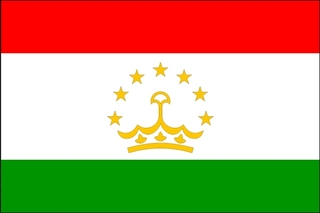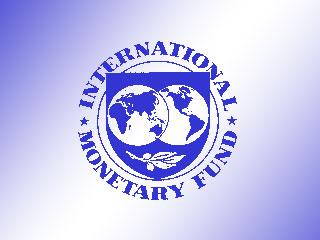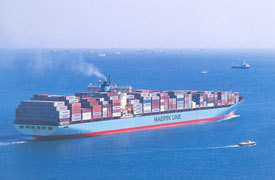It is the only source that can provide a chance for economic breakthrough
Published:
21 March 2005 y., Monday
Money from Russia’s Stabilisation Fund is expected to be invested abroad in dollar-nominated securities, with minimum investment risks and minimum profitability at 2-4%. These funds have until now been kept in Central Bank accounts. This means that a great deal of money will soon appear on the financial markets. On February 1, 2005, the Fund totaled 647.2 billion roubles ($23.1 billion), which mostly came from taxes on oil sales with prices exceeding $20 per barrel and export duties from oil companies.
The crucial question is how this money should be used. Money can only be taken out of the Fund when it has more than 500 billion roubles. Therefore, more than a fifth of its resources can already be used. This is a key issue for Russia’s economy, as the positive overseas market situation in recent years has been almost exclusively responsible for its growth.
However, experts are not tired of repeating that the potential of the resource-oriented Russian economy has been virtually exhausted. The mechanism whereby "we produce oil, sell it and enjoy the benefits" is becoming increasingly less effective. The country is now at a stage when it must introduce an industrial policy. However, any policy only makes sense when there is money to implement it.
Russia’s stock market and banking system do not provide the necessary financing for the real sector of the economy. Direct foreign investment in Russia remains at a very low level, while foreign investment in general is concentrated on either the import of equipment or foreign borrowings. The country obviously needs sources for further growth. The Stabilisation Fund is virtually the only potential source today and a genuine war is being waged for its funds.
Šaltinis:
financialexpress.com
Copying, publishing, announcing any information from the News.lt portal without written permission of News.lt editorial office is prohibited.
The most popular articles
 A record 131 economies around the globe reformed business regulation in 2008/09, according to the IFC–World Bank Doing Business 2010 report.
more »
A record 131 economies around the globe reformed business regulation in 2008/09, according to the IFC–World Bank Doing Business 2010 report.
more »
 The World Bank’s Board of Directors today approved a US$5 million grant to improve the quality of electricity services in Haiti and strengthen the financial and operational performance of Electricité d’Haïti, the public electricity utility.
more »
The World Bank’s Board of Directors today approved a US$5 million grant to improve the quality of electricity services in Haiti and strengthen the financial and operational performance of Electricité d’Haïti, the public electricity utility.
more »
 Firuza Ziyoeva, a 42-year old mother of five, lacks any sustainable income for her family – her husband is unable to work due to disabilities and their children are all young.
more »
Firuza Ziyoeva, a 42-year old mother of five, lacks any sustainable income for her family – her husband is unable to work due to disabilities and their children are all young.
more »
 The Managing Director of the International Monetary Fund (IMF), Mr. Dominique Strauss-Kahn, made the following statement today regarding Singapore’s commitment to increase fourfold its contribution to the Fund’s New Arrangements to Borrow (NAB) by US$1.5 billion, to a total of US$2 billion.
more »
The Managing Director of the International Monetary Fund (IMF), Mr. Dominique Strauss-Kahn, made the following statement today regarding Singapore’s commitment to increase fourfold its contribution to the Fund’s New Arrangements to Borrow (NAB) by US$1.5 billion, to a total of US$2 billion.
more »
 Statistics Lithuania reports that, based on non-final data obtained from customs declarations and Intrastat reporting data, exports in I half-year 2009 made LTL 19 billion, while imports – LTL 21.2 billion.
more »
Statistics Lithuania reports that, based on non-final data obtained from customs declarations and Intrastat reporting data, exports in I half-year 2009 made LTL 19 billion, while imports – LTL 21.2 billion.
more »
 Since 7 September 2009 AB Bank SNORAS for residents and economy subjects begins to distribute a new savings product - certificates of deposits.
more »
Since 7 September 2009 AB Bank SNORAS for residents and economy subjects begins to distribute a new savings product - certificates of deposits.
more »
 “We are 53 diverse countries differently affected by the crisis, 1 billion people that cannot be ignored”. That was the stark message to Members of Parliament's Development Committee from Donald Kaberuka, the head of Africa's Development Bank at a hearing on 3 September in Brussels.
more »
“We are 53 diverse countries differently affected by the crisis, 1 billion people that cannot be ignored”. That was the stark message to Members of Parliament's Development Committee from Donald Kaberuka, the head of Africa's Development Bank at a hearing on 3 September in Brussels.
more »
 The European Investment Bank has granted a EUR 450 million loan to AENA (Aeropuertos Españoles y Navegación Aérea) for upgrading and expanding Spain’s air traffic control facilities in order to optimise their overall efficiency and ensure that they comply with international regulations.
more »
The European Investment Bank has granted a EUR 450 million loan to AENA (Aeropuertos Españoles y Navegación Aérea) for upgrading and expanding Spain’s air traffic control facilities in order to optimise their overall efficiency and ensure that they comply with international regulations.
more »
 Statistics Lithuania informs that in August 2009, against July, prices for total industrial production sold increased by 0.9 per cent.
more »
Statistics Lithuania informs that in August 2009, against July, prices for total industrial production sold increased by 0.9 per cent.
more »
 Despite signs the near two-year U.S. recession may be over - Americans are still finding it hard to get a job.
more »
Despite signs the near two-year U.S. recession may be over - Americans are still finding it hard to get a job.
more »